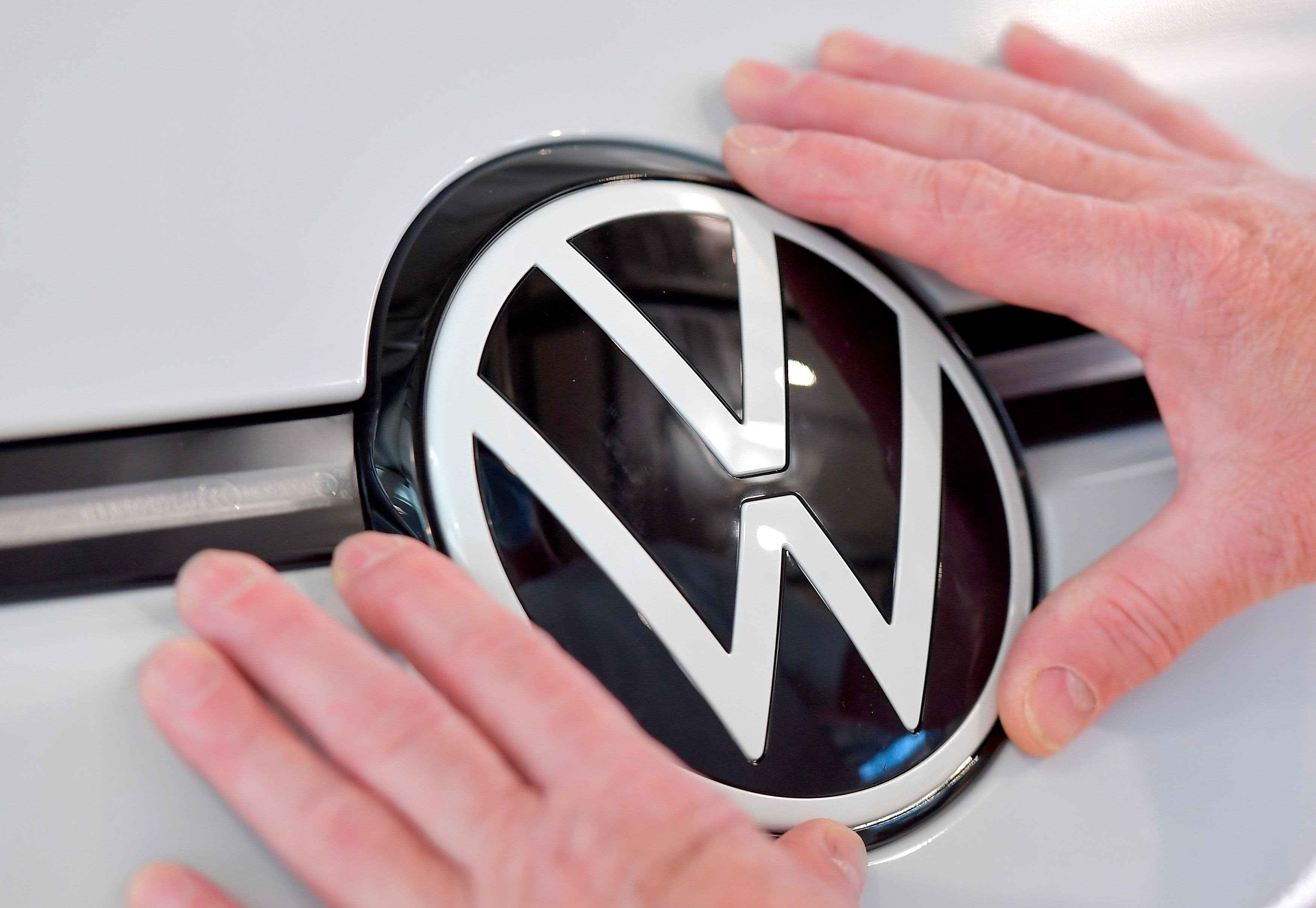Volkswagen said several of its battery-electric models, including the Porsche Taycan, are already sold out for 2022, and that high consumer demand is helping its electric-car effort become as profitable as its internal-combustion lineup more quickly than expected.
Volkswagen has worked for several years on an aggressive plan to transition to electric vehicles, aiming to have EVs account for half of its global production by 2030. While the plan isn’t expected to hit its full stride until the middle of this decade, it’s already bearing fruit. Volkswagen was the leading seller of EVs in Europe, with about 25% of the market. In the U.S., it was second behind Tesla with about 7.5% share last year.
Volkswagen’s share of China’s EV market is still relatively small, but it’s growing quickly. The group’s EV deliveries in the country jumped fourfold last year to nearly 93,000, and VW expects that total to double again in 2022.
“We see better scale, we see better margins, we see high customer demand,” CFO Arno Antlitz told reporters during a call ahead of the company’s annual meeting on Tuesday. “Originally we thought it takes two to three years until we see the [profit] parity of ICE and battery-electric vehicles.”
Part of that “better scale” is coming courtesy of rival Ford Motor Company. Ford and VW announced on Monday that there will now be two electric Fords built on Volkswagen’s EV architecture for the European market, with production of the pair expected to total about 1.2 million vehicles over six years starting in 2023. That’s about twice as many as originally planned.
Volkswagen and Ford have been collaborating on electric vehicles, self-driving and other big-ticket initiatives since 2019.
In a separate update for investors ahead of the annual meeting, VW said that its next-generation EV platform is on track to launch in 2026 with a new VW-brand electric sedan code-named Trinity.
The Trinity sedan will be built in a new advanced factory adjacent to VW’s headquarters campus in Wolfsburg, Germany. The new facility will use advanced production methods and will serve as a blueprint for the gradual conversion of VW plants worldwide to EV production.
Last week, the company unveiled its ID. Buzz vehicle, an electric version of the iconic hippie-era microbus.
VW is also expanding its global charging network. The company said it has about 10,000 high-speed charging points operating now between the U.S., China, and Europe, and it plans to boost that total to about 45,000 across the three regions by 2025. About 10,000 of those will be in the U.S., it said, operated under the Electrify America brand created as part of VW’s Dieselgate settlement.
VW currently expects its overall deliveries, including internal combustion models, to increase between 5% and 10% in 2022. But CEO Herbert Diess acknowledged that Russia’s invasion of Ukraine could lead it to alter that guidance. He said the company is moving some of its production out of Europe to North America and China in response to war-related supply-chain disruptions.

